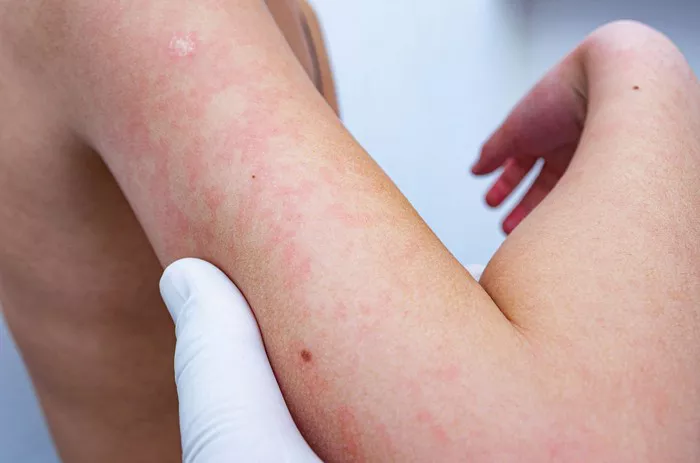Varicose eczema, also known as stasis dermatitis, is a common skin condition that occurs when there is poor circulation in the legs, leading to swelling, itching, and inflammation. It often affects individuals with varicose veins or other circulatory issues. While medical treatments are available, many people seek natural remedies to alleviate symptoms and promote healing. In this article, we’ll explore various natural approaches to managing varicose eczema and improving skin health.
Understanding Varicose Eczema
Before delving into natural treatments, it’s essential to understand the underlying causes and symptoms of varicose eczema. This condition typically arises due to impaired blood flow in the lower extremities, often associated with varicose veins or venous insufficiency. When blood pools in the legs, it can lead to increased pressure in the veins, causing fluid to leak into the surrounding tissues. Over time, this fluid buildup can trigger inflammation and irritation of the skin, resulting in varicose eczema.
Common symptoms of varicose eczema include:
- Itching and burning sensations
- Redness and inflammation
- Dry, scaly skin
- Swelling and discomfort, especially around the ankles
- Skin discoloration, often appearing brown or discolored
While varicose eczema primarily affects the lower legs and ankles, it can spread to other areas if left untreated. Moreover, individuals with this condition may be at higher risk of developing leg ulcers, particularly if they have underlying venous insufficiency.
Natural Remedies for Varicose Eczema
While conventional treatments such as topical steroids and compression therapy are commonly prescribed for varicose eczema, many people prefer natural alternatives due to concerns about side effects or a desire for a holistic approach. Here are several natural remedies that may help alleviate symptoms and promote skin healing:
1. Elevate Legs: Elevating the legs above heart level can help reduce swelling and improve circulation. Spend periods throughout the day with your legs elevated on a stack of pillows or a reclining chair.
2. Compression Therapy: Using compression stockings or bandages can aid in improving blood flow and reducing swelling in the legs. Opt for graduated compression garments, which provide the most pressure at the ankles and gradually decrease towards the thighs.
3. Herbal Remedies: Certain herbs have anti-inflammatory and soothing properties that may benefit individuals with varicose eczema. Witch hazel, calendula, and chamomile are commonly used topically to alleviate itching and irritation. You can prepare a herbal compress or infused oil to apply to affected areas.
4. Essential Oils: Essential oils like lavender, tea tree, and peppermint can provide relief from itching and inflammation associated with varicose eczema. Dilute a few drops of essential oil in a carrier oil, such as coconut or almond oil, and gently massage onto the affected skin.
5. Dietary Changes: Consuming a balanced diet rich in antioxidants, vitamins, and omega-3 fatty acids can support skin health and reduce inflammation. Focus on incorporating fruits, vegetables, whole grains, and lean proteins into your meals, while minimizing processed foods and sugary snacks.
6. Hydration: Proper hydration is essential for maintaining skin elasticity and promoting healing. Drink plenty of water throughout the day to keep your skin hydrated from the inside out.
7. Avoid Irritants: Be mindful of potential irritants that can exacerbate varicose eczema symptoms, such as harsh soaps, perfumed lotions, and synthetic fabrics. Opt for gentle, fragrance-free skincare products and breathable clothing to minimize irritation.
8. Regular Exercise: Engaging in regular physical activity can improve circulation and strengthen the muscles in the legs, reducing the risk of swelling and discomfort associated with varicose eczema. Aim for low-impact exercises like walking, swimming, or cycling.
9. Cold Compresses: Applying cold compresses or ice packs to inflamed areas can help reduce itching and inflammation associated with varicose eczema. Wrap a few ice cubes in a cloth and gently press onto the affected skin for temporary relief.
10. Stress Management: Chronic stress can exacerbate inflammation and worsen varicose eczema symptoms. Practice relaxation techniques such as deep breathing, meditation, or yoga to manage stress levels and promote overall well-being.
Consultation with a Healthcare Professional
While natural remedies can be beneficial for managing varicose eczema, it’s essential to consult with a healthcare professional before starting any new treatment regimen, especially if you have underlying health conditions or are taking medications. A dermatologist or vein specialist can provide personalized recommendations based on your specific needs and medical history.
In some cases, medical intervention may be necessary to effectively manage varicose eczema and prevent complications such as leg ulcers. Your healthcare provider may recommend prescription-strength topical medications, oral anti-inflammatory drugs, or minimally invasive procedures to improve vein function and alleviate symptoms.
Conclusion
Varicose eczema can be a challenging condition to manage, but natural remedies offer a holistic approach to alleviate symptoms and promote skin healing. By incorporating lifestyle changes, herbal remedies, and self-care practices into your daily routine, you can effectively support skin health and improve circulation in the legs. However, it’s essential to work closely with a healthcare professional to develop a comprehensive treatment plan tailored to your individual needs. With the right approach, you can find relief from varicose eczema and enjoy healthier, happier skin.
Related Topics:


























